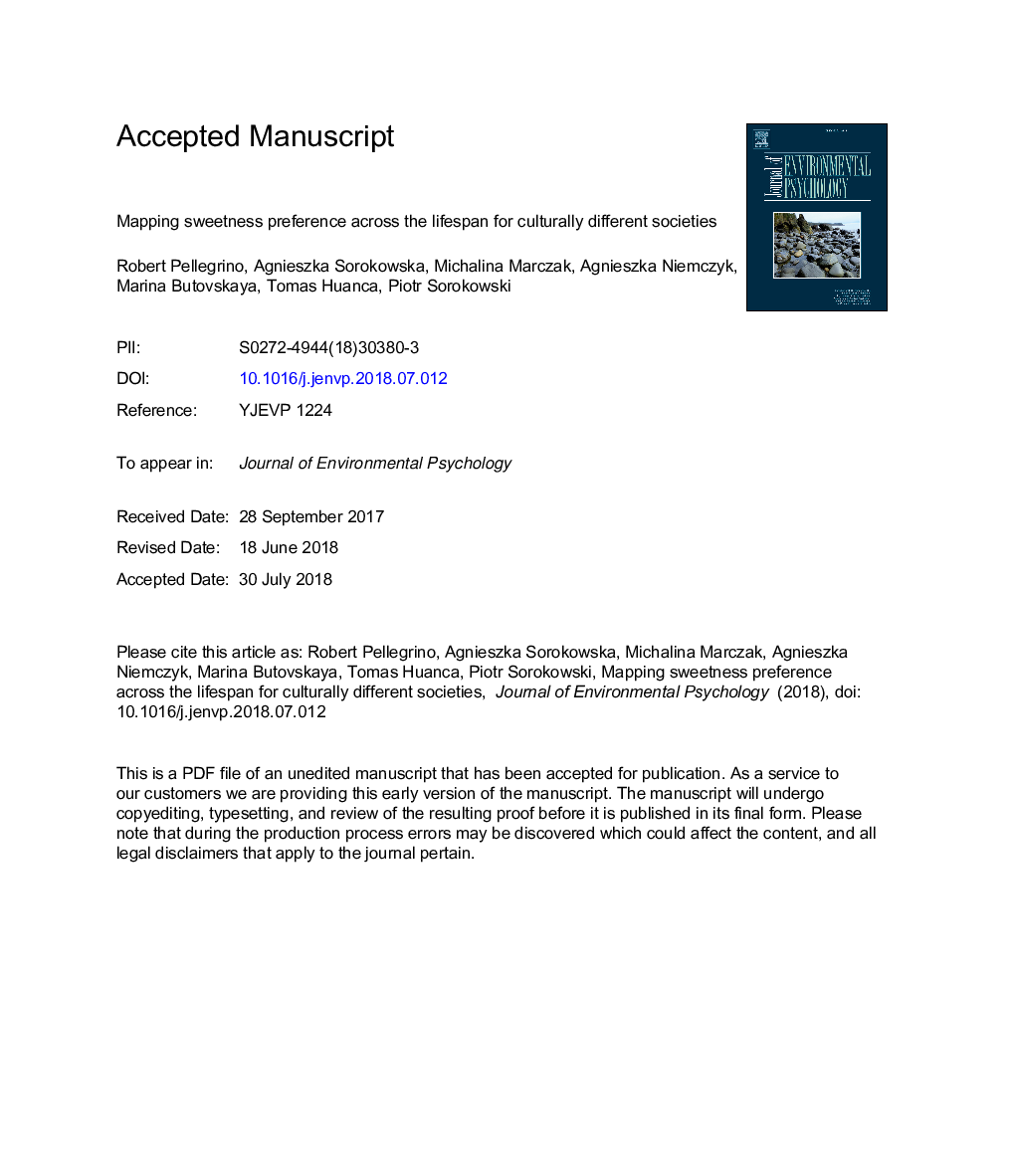| Article ID | Journal | Published Year | Pages | File Type |
|---|---|---|---|---|
| 7245102 | Journal of Environmental Psychology | 2018 | 18 Pages |
Abstract
The preference of sweetened foods can be influenced by a variety of biological, psychological, sociological, and environmental factors. In this study, we focused on differences across three distinct societies: 1) a modern society (i.e., Polish people, nâ¯=â¯199), 2) forager-horticulturalists from Amazon/Bolivia (Tsimane', nâ¯=â¯138), and 3) traditional hunter-gatherers from Tanzania (Hadza, nâ¯=â¯81). To measure sweet preference, participants were asked to drink three cups containing slightly acidic solutions (pHâ¯=â¯2.79) varying in sucrose concentration (w/v; 0%, 25%, 67%). Only 5% of the Polish participants chose the sweetest cup as their favorite, while this cup was chosen by 74% of the Hadza and 53% of the Tsimane' participants. Further, age was an inversely related to sweet preference for Polish participants; however, age did not predict preferences for both Tsimane' and Hadza tribes. We discuss our findings in the context of environmental and cultural differences between the participating populations.
Keywords
Related Topics
Social Sciences and Humanities
Psychology
Applied Psychology
Authors
Robert Pellegrino, Agnieszka Sorokowska, Michalina Marczak, Agnieszka Niemczyk, Marina Butovskaya, Tomas Huanca, Piotr Sorokowski,
